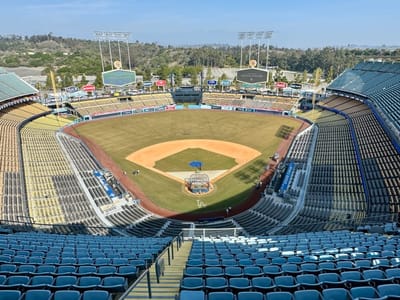Reading list
On a weblist, I responded to the question: What books have been most influential about the way you see the web now and in the future? with the following, and felt it was worth sharing. 1 - In 1996, I read Douglas Coupland's Microserfs and it got me thinking that I could and should work in this technical industry, if for nothing else, to be surrounded by smart people doing interesting and fun things. After a few months as an environmental engineer (after getting my masters in environmental chemistry), I chucked it all to do web development full time and haven't looked back since. 2 - Steve Krug's Don't Make Me Think brought all the best lessons from usability down to a readable text that began a discussion, and explained the give and take that usability and design sometimes have to work against. It was refreshing to read after hearing only decrees from on high, delivered in the full style of academics telling everyone how Things Should Be Done. If I had to pick one web-specific book as my all time favorite, this would be it. 3. Philip Greenspun's Philip and Alex's guide to Web Publishing did much of the same things Krug's no nonsense text did: it brought down cerebral discussions of how to separate content into databases from display structure, how to build those database-powered applications, and how to scale them into a community. It's general enough to almost read as tool/technology agnostic (if you can ignore the "oracle is the best, ever!" type sentiments) as it teaches the basics of how to think like a database programmer and how to construct web applications where there were once only web pages. 4. Chris Locke, et al's Cluetrain Manifesto is pretty much the short version of Futurize Your Enterprise by Siegel (the person asking the question mentioned this in their list), and presented a lot of good ideas at how to conduct business in an honest, upfront way that doesn't pander or patronize the customer. I thought it was mostly hype at first, but after helping build a business that subscribed to many of the same goals as the book, I found out how rewarding it was, to treat customers with respect, and as humans, and see how they loved us. 5. Malcolm Gladwell's The Tipping Point isn't a technical book by any stretch, but was a great read into how ideas spread like wildfire. If you're into tracking internet memes or trying to market something someday, it's worth picking up. 6. George Olsen (list member I didn't know at the time) suggested I read a comic-turned-book in 1997, called Understanding Comics by Scott McCloud, and I thought he was crazy. Then a week later, I heard another web developer mention Understanding Comics was the best thing they'd read in ages. Then I found out a friend's internet company gave him a stack of books at his time of hire, among them Understanding Comics. I finally picked up a copy in 1998 and read it. It's about comics, but general enough that there are clear lessons to glean for web work. How to tell a story in a limited space, with limited words, limited attention spans, and limited color palettes applies both to the sunday newspaper as well as the average win98 box running IE on a 17" monitor. He breaks down comics to the essential mechanics that could be easily applied to web page design, web copy writing, banner ads, etc. I'd say these are all a must read, in addition to texts about the medium itself and its future, like Weaving the Web, the various books about recent internet history offer some great background (there are several good netscape-in-1995/Microsoft-vs-Netscape-browser-war titles I've read in the past couple years). A fantastic pre-web interface book, The Inmates are Running the Asylum is another must. If you're doing design, it helps to get a little history, perspective and inspiration from the profile of Tibor Kalman in Perverse Optimist and Andy Goldsworthy's amazing natural stuff. Taken together, these books build a foundation for critical thinking about the web, help solve current problems you may face in day-to-day web development, and lay the groundwork for how to process new technologies in the future.
Subscribe to our newsletter.
Be the first to know - subscribe today





